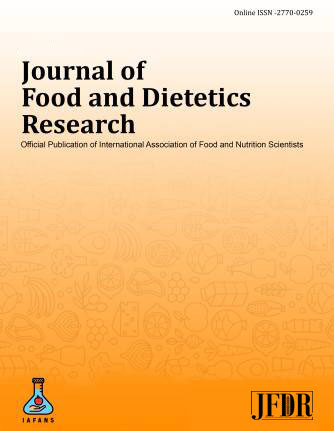Development of fruit candies from wood apple (Limonia acidissim) and passion fruit (Passiflora edulis), nutritional and acceptability study during storage
DOI:
https://doi.org/10.48165/JFDR.2021.1103Keywords:
Candies, Proximate analysis, Antioxidant, Sensory acceptance, Microbial analysis, Storage stabilityAbstract
Objectives: Fruit candies were prepared using Wood apple (Limonia acidissima) and Passion fruit (Passiflora edulis) and evaluated for the proximate composition, antioxidant activity, flavonoids and phenolics contents, sensory attributes, storage stability, and microbial load in the developed products. Wood apple and passion fruit are cheaper, highly nutritious and easily perishable, and seasonally available fruits. This study planned to make these fruits available through the year by preserving them as soft candies.
Material and Methods: Soft candies were developed stored and quality parameters were assessed for a period of 90 days. The candies were evaluated by a panel for sensory attributes using 9 point hedonic scale.
Results: The acid content of the preserved products remained the same during the entire storage. The moisture content in both the products was > 12% and the protein content ranged from 1.4% to 2.34%. As expected, the fat and crude fiber contents were low. The total phenolics and flavonoids were present in appreciable amounts. The developed products showed acceptable sensory attributes and were microbiologically safe at the end of the storage period and fit for consumption.
Conclusion: Hence the study concluded that, the developed wood apple jam and fruit bar in this study was safe and fit for consumption. The seasonal fruits can be exploited for preparation of fruit candies.




